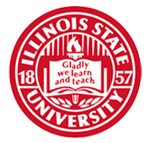Abstract
Interprofessional education is essential to developing future healthcare practitioners who can effectively collaborate with other professionals in practice settings. The current study examined the effectiveness of an escape room as an educational tool for interprofessional practice for occupational therapy, physical therapy, and speech-language pathology graduate students. This study employed a mixed-methods design. Eighteen healthcare graduate students agreed to participate in the educational escape room. The Students’ Perceptions of Interprofessional Clinical Education Revised instrument was used as a pre-and post-test to determine whether there were differences in the student perceptions before and after the educational escape room. In addition to the quantitative pre and post-test measures, the participants were debriefed and asked post-escape room questions. The statistical analyses of the quantitative data indicated large increases in the full-scale composites and each of the three subscales, all ts > 3.20, all ps < .005. The qualitative analysis depicted three main themes: insight into other professions' roles, enjoyment in the process, and teamwork. The findings of this study support the utilization of an educational escape room. The educational escape room can be adapted for any interprofessional group of healthcare practitioners to help promote and develop interdisciplinary skills.
Recommended Citation
Lenhardt, R.,
Carsone, B.,
Lunsford, D.,
Goodman, M.,
&
Caswell, A.
(2025).
An Escape Room to Cultivate Interprofessional Skills: A Mixed Methods Study.
Teaching and Learning in Communication Sciences & Disorders, 9(2).
DOI: https://doi.org/10.61403/2689-6443.1364




